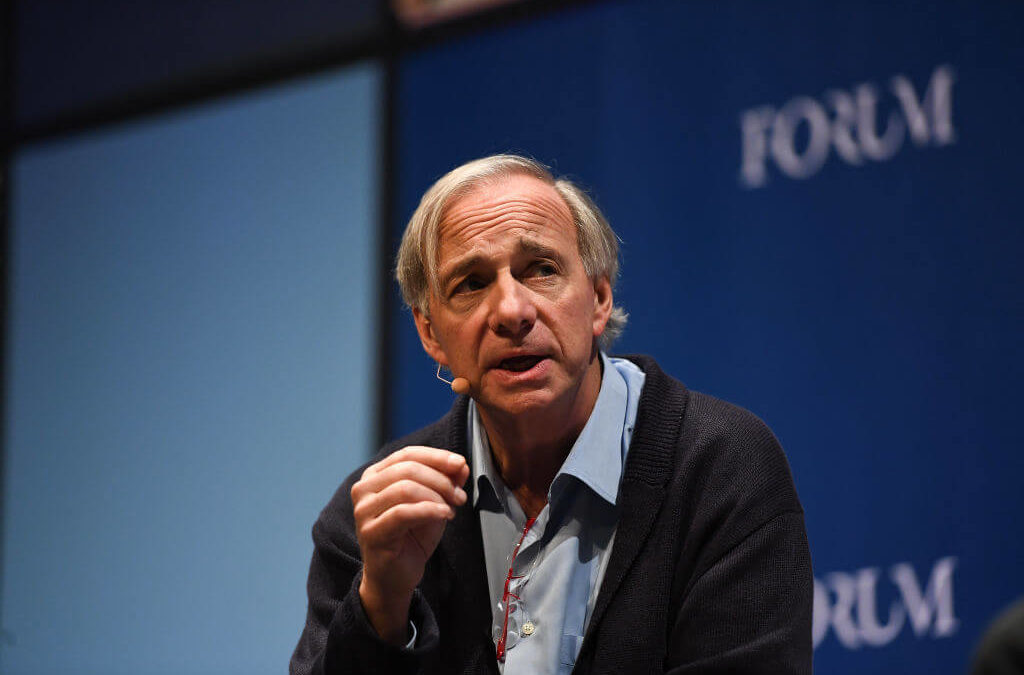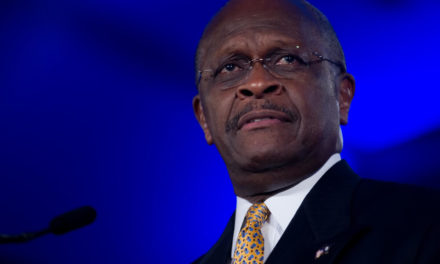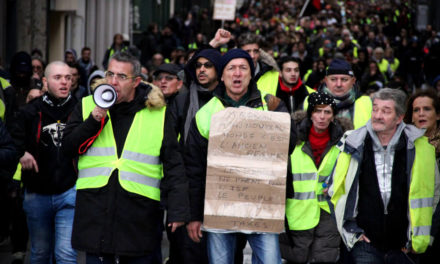Billionaire Bridgewater founder Ray Dalio offered a harsh critique of capitalism in a spirited debate Monday morning on CNBC’s “Squawk Box,” saying it isn’t completely broken but it does need reform because “we are losing a middle class.”
If we don’t have reform, we will likely have revolution, Dalio said in a two-part essay published on LinkedIn called “Why and How Capitalism Needs to Be Reformed.”
Dalio said capitalism allowed him to get where he is, but there are far too many people today who don’t have an “equal opportunity for the American dream.”
“I’m capitalist, I’m a professional capitalist. The system has worked for me,” Dalio said during a spirited debate. “I didn’t have anything and then I got something through the capitalist system.
“So I was raised with equal opportunity. I went through the public school system and I had parents who took care of me. Then I was able to come in with equal job opportunities.”
The bottom 60% of U.S. workers aren’t getting those same kind of opportunities, Dalio said, blaming in part a failing public school system that is leading to high levels of incarceration. Dalio said the root of the issue is a failure of the system to make sure people aren’t left behind.
“How has it been for income? How has it been for equal opportunity? That has been something for a long, long, long time. Is that deniable that it is producing those outcomes?” he said.
The result “is producing a terrible split in our country,” he added.
Per CNBC:
His appearance featured a contentious back-and-forth on whether it was capitalism itself that was fracturing the country or it was also about a number of other obstacles such as fiscal and monetary policy.
“I honestly don’t understand what it is we’re arguing about,” Dalio said at one point.
Dalio has used philanthropy to help address inequality. While he’s accepted subsidies to stay in Connecticut, he also has donated $100 million to the state, whose public education is generally ranked among the top in the country. The 2018 USA Today rankings put the state fifth.
Dalio told CNBC that it was probably a mistake for Bridgewater to accept the subsidy.
“I look at myself as a byproduct of capitalism when it also gave equal opportunity, the American dream. I was very lucky to live the American dream by having the proper care and the proper public school education,” he said. “A number of things have changed.”
Dalio also appeared on CBS’s “60 Minutes” on Sunday, saying President Donald Trump should place a greater emphasis on income inequality, calling it a “national emergency.”
“If I was the president of the United States, what I would do is recognize that this is a national emergency,” Dalio said. “If you look at history, if you have a group of people who have very different economic conditions, and you have an economic downturn, you have conflict.”
Per Bloomberg:
Dalio cited four major countries in the 1930s that “chose not to be democracies because they wanted leadership to bring order to the conflict.” While he’s not saying the U.S. will go there, it’s an unfair and unproductive issue that “threatens to split us,” he said.
“The American dream is lost,” he said. “For the most part we don’t even talk about what is the American dream. And it’s very different from when I was growing up.”
The Republican idea that cutting taxes on the rich promotes productivity “doesn’t make any sense to me at all,” and the wealthy must pay more, Dalio said. “The important thing is to take those tax dollars and make them productive,” he added.
Income Gap
Dalio, expressed similar sentiments in an essay posted April 4 on LinkedIn. He pointed to statistics including that the bottom 60 percent of income-earners in the U.S. keep falling further behind the top 40 percent — and that the percentage of children who grow up to earn more than their parents has fallen to 50 percent today from 90 percent in 1970.
The income gap is about as high as ever, and the wealth gap is the highest since the late 1930s because the wealth of the top 1 percent of the population is more than that of the bottom 90 percent combined, Dalio said.
“Disparity in wealth, especially when accompanied by disparity in values, leads to increasing conflict and, in the government, that manifests itself in the form of populism of the left and populism of the right and often in revolutions of one sort or another,” Dalio wrote.




